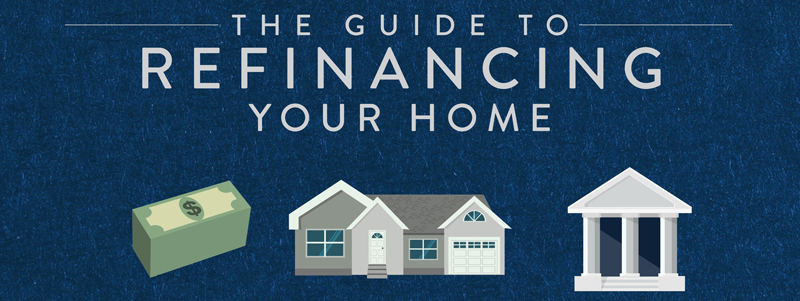Many people have to deal with the reality of living with a mortgage. Mortgages enable you to access funding and allow you to afford to buy your own home or purchase an investment property. The terms at which you access those funds, however, can often be more of a burden than a boon.
The rates of your mortgage rely heavily on timing, your financial position, and your knowledge of the loan market. At the time you apply, interest rates will reflect market conditions, and your borrowing power will reflect your prevailing financial situation. Your choice of rates will also depend on how much effort you put into shopping around and checking various offers. All of these factors affect the sort of deal you enter into for your mortgage.
If any of these factors change during the term of your loan, it is possible to refinance your mortgage. If the market improves and interest rates drop, refinancing gives you the chance to take advantage of this. It also allows you to shorten your term, cancel mortgage insurance, and in the process, get more money back into your pocket each month.
If you want to get better terms on your mortgage, or you’d like to free up some of your funds to make other investments, here are a few quick tips to refinancing your loan:
- Review your credit score
Refinancing options for you will depend on your credit score. The better your credit score, the more options you will have. Take the time to review your finances and strengthen your credit rating. Pay your debts on time and in full, avoid errors and late payments, and keep your credit card balances low.
- Check the timing
Interest rates are time-sensitive. Economic conditions in a specific area can either cause them to shoot up or to sink. Observing the market for even half-percentage drops as these can translate to hundreds of dollars in savings.
- Shop around for rates
Check your bank’s competitors for their rates. You don’t need to wait for your bank to offer you a better deal. You can browse online and use different lenders’ loan calculators to get quotes.
- Find the right lender
Many different institutions offer great refinancing options. Aside from banks, there are credit unions and federal housing authorities. You can also consult a mortgage broker who might help you get access to better deals and waived fees.
- Don’t stretch it out too long
If you have been able to save more cash, pay off your mortgage, and shorten the term of your loan. The goal of refinancing is to lower your monthly payments, but not at the expense of restarting your loan term. If you’ve already paid five years’ worth of a 20-year run, it might not be worth it to refinance if it means going back to zero.
- Review the Good Faith Estimate
The initial estimate often differs from the final terms in the refinance plan. The quote may change after a review of your credit score. Make sure also you take the time to read the fine print and add up the closing costs.
Refinancing is an excellent opportunity to take advantage of improved conditions in the market. However, refinancing costs money and should only be done under the right circumstances. What is important is that when the timing is right, and your financial situation has improved, you grab the best deal for you.
Whatever loans you need, we can help you get funding. If you are looking for refinancing options in Buffalo, get in touch with us today!

